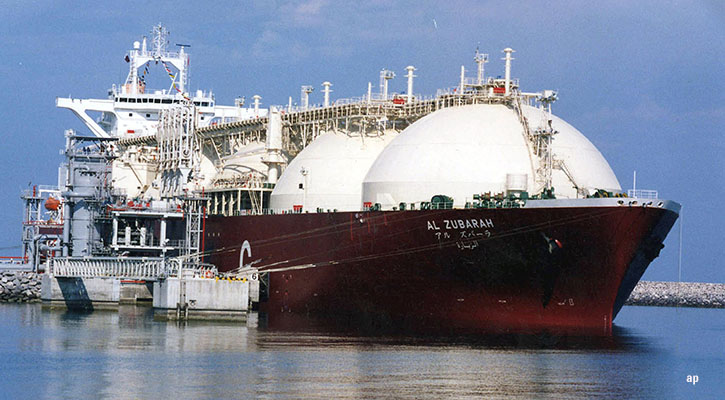Top news of the week
November CPI turns positive for the first time since January
China's National Bureau of Statistics released key economic data for November on Friday. After eight months of negative year-over-year comparison, the consumer price index (CPI) returned to the positive for the first time since January 2009. November CPI rose by 0.6%, compared with a negative 0.5% in October. Higher water and electricity rates following pricing reforms, as well as increases in the prices of food and cooking oil in recent weeks, helped push up retail prices. The wholesale price index remained negative, but the decline was much milder in November, down only by 2.1%, compared with a negative 5.8% in the prior month.
Official statistics show that the economy was humming along nicely in November, with industrial output and retail sales increasing by 19.2% and 15.8% year over year. Expansion of fixed-asset investment, which contributed to the bulk of GDP growth so far this year, cooled off slightly in November, but still increased by 24.3% from a year ago. It increased by 31.6% year over year in the month before. Power generation, watched by many as an important indication of industrial activities in China, rose by 27% in November compared with that of the year-ago period.
Exports were showing signs of improvements, too. November exports topped $113 billion, still down by 1.2% from the year-ago period, but the loss was much narrower compared with the negative 13.8% in October. The number was also 2.6% higher sequentially. Meanwhile, imports jumped by 26.7% year over year to $94.6 billion, the second-best level in 2009. Because a large portion of the imports are for eventual exports, the strong number points to expansion in exports in the coming months.
Monthly new loans bounced back from the lowest level reached in October, up by CNY 42 billion to CNY 295 billion in November, but the loans were still significantly lower than the monthly average in the first nine months of this year. Chinese banks have extended CNY 9.2 trillion so far this year. According to media reports, the government will likely cap new loans at CNY 8 trillion for 2010.
Market recap
The adjustments in stimulus measures announced last week and strong
November economic data released on Friday led the market to believe that
some form of tightening will come sooner than previously expected. For
the past trading week, the Shanghai Composite Index decreased 2.1% to
3,247 points, while the Shenzhen Composite Index ended the week flat at
13,876 after reaching the yearly high of 14,097 mid-week.
Macro and industry updates
China adjusted stimulus measures after Annual Central Economic Work
Conference
The key message from the closely watched Annual Central Economic Work Conference is that 2010 will be a year of structural changes to build a more balanced economy. Consumption should remain a key growth driver, but the torrid pace of fixed-asset investment will likely slow down somewhat. The government pledged to keep a "moderately loose" monetary policy.
Following the conference, changes were announced to some stimulus measures put in place a year ago. Most noticeable was the reinstatement of taxes for sales of existing homes. China charges taxes on properties that are flipped within five years of purchase, but homes bought for at least two years were temporarily exempt from such taxes in 2009. The authorities now have to scrap the tax break to curb speculation in the property market. Tax breaks on compact car purchases were also scaled back. Consumers now need to pay a 7.5% tax on qualified car purchases, up from 5% in the past year, but still lower than the 10% regular rate. However, China will extend the trade-in subsidy for household appliances beyond May 2010, when it was previously set to expire.
Regulators keen to consolidate steelmakers
According to the latest announcement from the Ministry of Industry and Information Technology, small steelmakers with annual production capacity of below 1 million metric tons will find it hard to survive. Any steel mill that falls below the minimum capacity requirement will not be given an iron ore import quota, and local banks will be discouraged from extending loans to them. If implemented, the new regulation will force about 200 small steel mills, or about 30% of the total in China, to either shut down or merge with larger firms.
China to build 42 high-speed rail lines in three years
These railway lines, totaling 13,000 kilometres in length, are expected to accelerate the growth in passenger and freight transportation between the inland and coastal areas of China. In late December, China will officially unveil a 1,100-kilometre high-speed passenger rail line that links the hub city of Wuhan in central China to Guangzhou in the south. The rail, costing $17 billion and taking four and a half years to build, can support trains running at up to 350 kilometres per hour, the fastest in China so far, and will shorten the travel time between the two cities by 70% to three hours.
Contributions from Iris Tan and Zhao Hu.










:quality(80)/cloudfront-us-east-1.images.arcpublishing.com/morningstar/MNPB4CP64NCNLA3MTELE3ISLRY.jpg)












